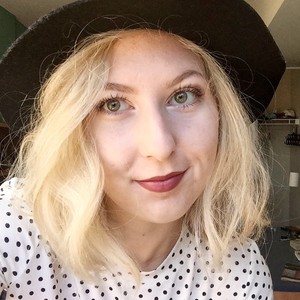The term “diet” has been misconstrued and misunderstood; I speak of “diet” in terms of how the Oxford Dictionary defines it, “the kinds of food that a person, animal, or community habitually eats.” Although your diet can lend itself to a healthier lifestyle, this does not always mean having a goal of weight-loss.m
It can be a confusing mess trying to determine what you should eat, let alone when and how. But here’s the secret: food is not as confusing as you think. Here’s a series of questions to ask yourself about your current eating habits to determine if you’re following the best diet for you:
Is it sustainable?
The word “sustainability” often provokes images of saving paper and conserving energy; all great things to benefit our environment. But did you know you can even help yourself by eating sustainably? Of course, you should be aware of how food production affects the environment and even poverty, but is your way of eating sustainable for your own life?
Ask yourself this question: can you picture yourself eating this way in the future? This really puts things into perspective. If you would like to eat more veggies in the future, why not start now? If you’re focusing on weight-loss by depriving yourself, imagine a future diet without these destructive behaviours and encourage yourself to seek help.
Just think, in 20 years do you still want to be calorie counting or relying on fast food on the daily? Distance yourself from eating behaviours that aren’t sustainable to achieve whatever your “balance” is. You’ll thank yourself in the long run.
Is it realistic?
Whether you need to cut back on your grocery bill so you don’t have to steal your roomies snacks, or your crazy schedule has got you sacrificing meals, you should focus on what’s realistic for you. Don’t set yourself up for failure, it may be a bit far-fetched to think you can whip up French toast and eggs before an 8 a.m. lecture.
Start small with simple recipes in order to get back into a routine. Don’t feel bad if you can’t figure out how to cook the trendiest vegetables, just get back to basics. If you have any questions about making food, check this guide out.
Does it make you feel good?

Although your physical body should feel happy and healthy, you have to make sure your soul is satisfied too. This means not feeling restricted at all, which has all sorts of unhealthy consequences. There’s no need for a strict juice cleanse in order to up your nutrient-intake. If you feel more satisfied eating six smaller meals a day, go for it. If you would rather sit down to a larger meal, let that be your thing. No health guru can tell you how to feel good. Take it one day at a time.
If you sit down and stress about the macro-balance of your plate or worry about that second piece of cake you had last night, take a breather. The point of having a “diet” is that it’s not a quick-fix trend. It’s ongoing and fluid and the best part is, you get to make the rules.
Are you aware of your food?

I think all of us are very aware when there’s a nice warm, gooey slice of pizza in front of us, but do you really know what you’re eating? Try educating yourself on ethical consumerism so that you can make choices knowing how they impact other people (and even animals). Whether you decide to go vegan, give up meat once a week or buy fair trade chocolate once in a while, you’re making a difference.
Attempting to get into the college grind (whether it’s your first year or your fourth year back,) can be pretty tricky. Here’s to hoping these simple questions can help you navigate any issues you have with your diet. Remember to not let what you eat get in the way of all the wonderful things you can do.



